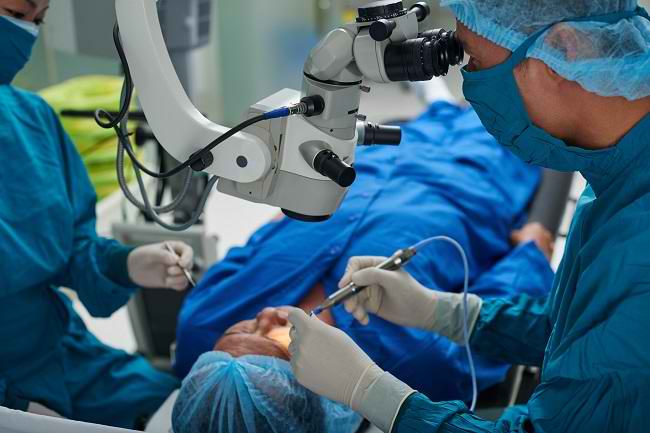MThere are still some people who think that a dermatologist and a beautician are the same, even though they are different. Especially in terms of its role in treating patients.
A dermatologist is a doctor who plays a role in treating and treating various conditions or diseases of the skin, hair, nails, and mucous membranes (the lining inside the mouth, nose, and eyelids), genital problems, but a dermatologist also deals with healthy skin care. to maintain beauty. Dermatologists must have specialized education for at least 3.5 years to be awarded the title SpKK (Skin and Venereology Specialist).

The role of a dermatologist in dealing with skin diseases
Dermatologists treat various diseases of the skin. There are so many types of skin diseases, up to more than 3,000 types. Some of them can also attack the hair, nails, and other body parts, such as the lining of the mouth, nose, and eyelids.
In addition to skin diseases, dermatologists can also help patients reduce wrinkles, age spots, treat acne scars and skin cancer. A dermatologist will assist you in diagnosing and providing treatment for these diseases, for patients of all ages.
DiverseDiseases that a Dermatologist Can Treat
As the largest organ of the body, skin is the body's first line of defense against bacteria and injury. Disorders of the skin can be caused by infection, heredity, autoimmune disorders, and others.
Here are some conditions that are generally treated by dermatologists:
- Pimple
Acne is classified as the most common skin disease. This disease is caused by a disturbance in the pores and oil glands of the skin. Acne can cause complications in the form of bumpy acne scars, can also cause psychological disorders in sufferers.
- Eczema and dermatitisSwelling and rash conditions due to skin inflammation. Eczema and dermatitis are often experienced repeatedly, so proper treatment and prevention needs to be done to avoid skin complaints.
- psoriasisPsoriasis is recognized by the symptoms of red or scaly and silvery skin due to an autoimmune disorder of the skin, which occurs chronically.
- Skin cancerThe most common types of skin cancer are melanoma, basal cell carcinoma and mucous cell carcinoma.
In addition, there are also several types of skin diseases due to infections such as:
- fungal infectionFungal infections are caused by a group of candida fungi, these infections can affect the skin, nails, and scalp. Generally classified as a mild infection, but in some people with weak immunity, this condition can become more severe
- wartWarts are caused by human papillomavirus (HPV) that infects the top layer of the skin, causing benign growths on the skin that can be contagious. A dermatologist can help remove warts using various techniques depending on the patient's condition.
- Herpes zosterHerpes zoster is known in Indonesia as smallpox or shingles. This viral infection can cause a painful rash that can even irritate the eyes. Treatments are carried out primarily to speed up the healing process and prevent pain, itching and even numbness, in the area of the rash.
As mentioned earlier, in addition to diseases and disorders of the skin, dermatologists also treat diseases of the genitals, such as sexually transmitted infections. Although dermatologists generally focus on treating various diseases or conditions that affect the skin, dermatologists also carry out normal skin care and even in terms of slowing the aging process, to beauty treatments.
Various skin problems can be treated by a dermatologist. Do not hesitate to consult a dermatologist if you have skin problems. A dermatologist will help you overcome this, by conducting an examination and providing treatment according to the condition you are experiencing.









